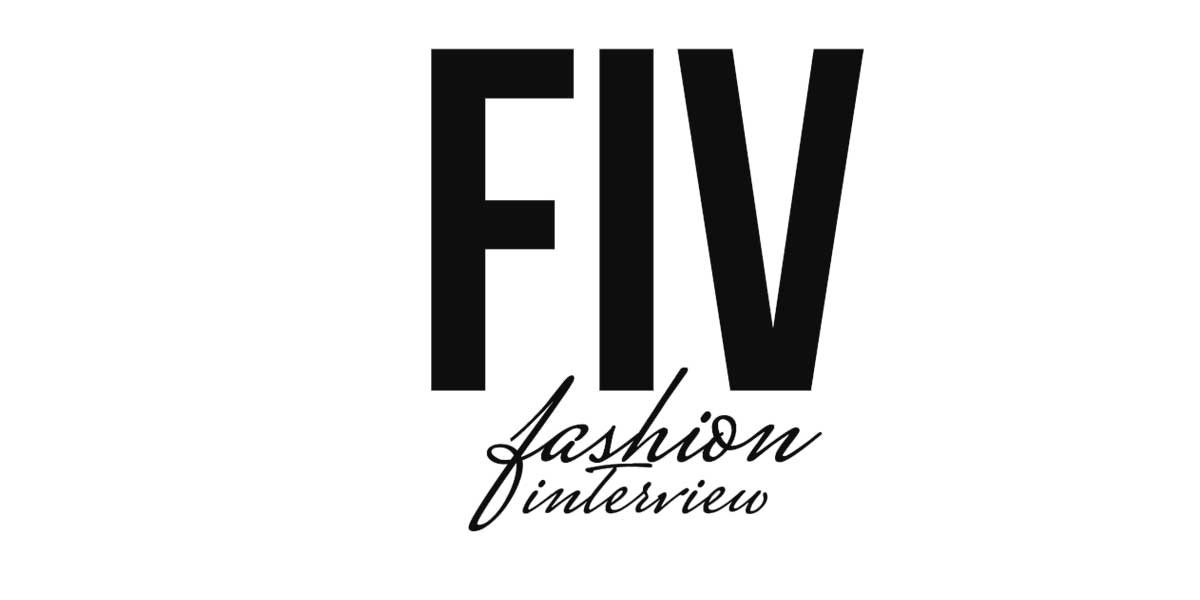Being happy (1): Financial freedom, mindset and 7 basic rules: “Richer than the Geissens” (book & podcast)
If you want to be successful in life, including professional success, you need more than “just” goals. Much more profound is one’s own mindset and ideals, which are built up and manifest themselves in life. Decisions depend on our ideals. Fortunately, these ideals can be changed, corrected, even completely torn down and renewed. All this with the aim of becoming happy, success not only in private life but also in business. But before it’s about money and your first real estate through generated equity, real estate millionaire and author Alex Fischer, in the podcast of “Richer than the Geissens”, gives a deep insight into the subject of mindset and ideal conceptions. Your prerequisite for success!
RADG – Career Podcast for your bucket list
Important: Currently the book is only available in Germany! I speak German and discovered this book or podcast two weeks ago. Even if you wouldn’t understand a word in the podcast, I wanted to introduce some of the methods and strategies to you!
“Richer than the Geissens” must be on the bucket list for everyone who is looking for success. Top 2 on Amazon for career, 200.000 readers, the numbers speak for themselves. When I streamed the audio book for the first time, I thought that I would be through in a day, far from it! What you learn in this book are long-term strategies that take time to work. Basically, it’s all about becoming successful with real estate within five years with €0 equity.
The podcast contains so many universal and timeless recipes for success! It is best to write along and always take notes while listening. Here is a very memorable quote from Alex Fischer from these episodes that I have written down:
“Strengthen your strengths!” – Alex Fischer
Here I want to point out once again the universality of the audio book “Richer than the Geissens”. For private persons, employees but also entrepreneurs who already generate a good cash flow, the book and audio book is a strong and (for the topic) compact guide.
success in life (and in business)
But before you start to build up cash flow, appropriate cash flow, equity and your very first property, you first have to work on yourself. After all, you are the architect of your own fortune.
To make good decisions, you need knowledge. This knowledge is based on situations, values and conversations that you have experienced in the course of your life. So you make decisions based on what you know every day. Now the big question arises: Do you learn after “Trial & Error”, i.e. do you try to explore all paths yourself, make mistakes, lose time, maybe even go as a self-employed insolvent or do you learn from those who have made it?
Exactly! If you want to succeed, you have to adopt structures and ways of thinking of people who are a positive role model for your goals. Learning from those who have made it is always a good strategy, especially to avoid your own mistakes. The less equity you have, the greater the risk of failure.
So before you start “earning money” start with the absolute basics, your mindset and ideal.
In this review, I will take you on a journey through the first few but central learnings from the first chapters of the free audiobook of “Richer than the Geissens”. You want to be successful? Then get the book or listen to the free podcast by Alex Fischer.
mindset for your life and entrepreneurship
What goals drive us as people, but also as entrepreneurs? In episode 6: Your personal real estate opportunities Alex Fischer discusses the very basic goals that drive us, especially with regard to real estate. Anyone who listens to the podcast “Richer than the Geissens” is pursuing one goal in particular: making money with real estate. Later in the podcast, it goes much deeper into your mind set. At the beginning of the podcast it says “Recognize your personal opportunities in the real estate market”, i.e. which segments, opportunities and goals make sense for you personally?
What is your individual goal?
Alex Fischer mentions many different motives in the podcast that can drive you, from carefree retirement to cash flow through real estate on a grand scale. You do:
- Improve your later retirement as effectively as possible,
- Convert taxes and duties into private assets,
- Earn or improve your living with real estate agency,
- Generate additional cash flow before retirement,
- Be able to live from the cash flow of rental income or
- Like Alex Fischer, you earn your living by selling real estate.
These are only some of the goals and possibilities that people want to realize. Concrete goals help you in general, think about what is really important to you. So you can achieve one goal after the other. For many who are at the beginning of their own career it is very helpful to think about your own ideas at an early stage before you invest a lot of time without having a concrete goal in mind.
So there are many ways, which depend on your goals on the one hand, but also on your personal requirements. This includes, of course, and above all equity capital. If you want to be successful in business, investments are inevitable.
According to Alex Fischer, there is much more to it, because there is always a goal behind the goal, your purpose. But before Alex Fischer goes deeper into the podcast, he asks the basic question: What would be your personally important 3 real estate goals and what is your goal behind the goal? You want to understand what this means in concrete terms? Then listen to episode 6: Your personal real estate opportunities from “Richer than the Geissens”.
You can find these and other goals in the member area of Alex Fischer. In addition, there are concrete study and learning tips on how to reach your individual goal – quickly and effectively. All methods and steps were tested by Alex Fischer himself. Orientation, overview, procedure. An extremely exciting way, where there is a lot to win.
Makes money happy?
Goals are great, the first goal of many entrepreneurs is financial freedom, i.e. equity capital and before that cash flow, in order to have the opportunity to build up their own equity capital in the first place. Money, money, money. Alex Fischer raises the question in episode 7: Makes money (really) happy? Alex Fischer gives a clear and direct answer: No, if it were, everyone in Hollywood would be happy. But it is not like that.
Alex Fischer writes and talks about moments of success in episode 7. Creativity and design as true lucky charms.
Moments of success: Just not for themselves
This is followed in the book by great examples of great moments of success that Alex Fischer has experienced, like many other celebrity examples. Great moments of success that were only supposed to be, mostly for outsiders. For yourself the world looks very different. He shows this with astonishing examples that I have never heard before.
Alex Fischer shows how, for example, Formula 1 legend Michael Schumacher, mountaineering legend Reinhold Messner, but also tennis legend Boris Becker, in their greatest moments, have personally felt no success, and this at their absolute peaks of success. Schuhmacher cried at the first victory in Monza. To this day he is the most successful driver Formula 1 history has ever seen. He holds the record of seven world championship titles with 91 victories. His first victory ended in tears, but not with joy. Here you can listen to all the stories in the podcast, in episode 7: Makes money (really) happy.
Reinhold Messner, Boris Becker and Michael Schumacher
When Reinhold Messner reached Mount Everest, “he felt nothing but emptiness and even fell into a depressive mood”. When Boris Becker achieved the victory to the number 1 of the world ranking list, he left the stadium without a word, sat down at a nearby river and cried. Alex Fischer himself had the same experience. 2.7 million with a signature. At the first property he was still completely euphoric, at the next one with 2.3 million not, not at all. He liked the property. So how can one make 2.3 million profit with one signature and then be unhappy?
That sounds familiar
Personal comment: As an entrepreneur, I too know the feeling, especially when you start young. As a young entrepreneur you are happy about your first 4-digit deal, your first 5-digit deal, your first 6-digit deal. In the beginning I also thought that the feeling of happiness increases exponentially. With the first 4-figure amount, the joy was huge, with the first 5-figure amount it was great, with the first 6-figure amount it was manageable and so on. In fact, the feeling of happiness does not increase in proportion to the growth of income. There must be more!
Money? No, creativity and design
Alex now uses an example to describe very nicely what it is all about. It is not about money, it is about design and creativity.
The answer to the question: “What is being happy?” is given by Alex Fischer with a key experience. A little neighbour boy built a perfect snowman, with foundation, carrot nose, everything a good snowman needs. Why? Because! After 5 minutes they tore the snowman apart with the same enthusiasm. Immediately afterwards he started to build an igloo. That’s when Alex Fischer understood what it was all about:
<“It wasn’t owning or managing anything. It was the creative process of creation that gave satisfaction and pleasure.” – Alex Fischer.
video: Implementing a business idea
How to best implement your business idea
positive thinking: mindset
Basically, the implementation of your goals is about a positive mindset. What do above-average happy people have in common? They take their life, their work, but also their relationships playfully, according to Alex Fischer. Why were Alex Fischer, Boris Becker, Michael Schumacher but also Reinhold Messner himself sad?
“It was the success that ended the game.” – Alex Fischer
Repeating this game is boring and does not give the same satisfaction. Felt it goes only downhill from now on. “Only” making more money doesn’t make you happy anymore. The big question:
<“What do you enjoy? What makes you happy?” – Alex Fischer.
Principles by Alex Fischer
His basic rules from episode 7 in the podcast “Richer than the Geissens”:
- Happiness is created through a creative, extroverted process (such as building a snowman, creating a valuable thing).
- There is no happiness without interest in the environment.
- Increasing income only makes you happy to the extent that it removes obstacles that restrict your basic needs (financial freedom).
- The more valuable your own contributions to the environment seem to you, the higher the happiness.
- The more you do for your environment and help it, the greater the personal satisfaction from it.
- Without a challenging goal, happiness does not seem possible.
- If the challenging goal is reached and no new one is in sight, this will result in unhappiness (you need a new goal)
These rules show why the “rich and beautiful” are often not happy. They no longer have a new goal that is not attainable for them. What a powerful insight. Financial freedom alone does not make people happy. What will make you happy is to achieve new goals yourself. For you and your environment. As Alex Fischer says: “Self-esteem is the foundation of self-confidence”. Here you will learn a lot in the later episodes of part 3. There you will learn about your resource list and strengths. These assets, combined with your Purpose (the big goal) and the industry market niche list, show you the most effective way to achieve financial freedom and happiness.
A positive mindset is what counts! Findings from “Richer than the Geissens” by Alex Fischer, episode 7: Makes money (really) happy?
Reason and ideals
The fifth chapter of the book or episode 10 in the podcast is about your own mind. Episode 10: How your mind evaluates and what tricks it plays in the process introduces the topic “ideal ideas”. Simply explained by means of an example in the audio book: A child, for example, cannot handle money, it has no comparative values yet. Our own mind constantly compares new information that we perceive with old information in order to be able to assess current, new situations. But it is the same in business. Are 1,000 visitors per month good or 100,000? Without a reference to what you have already learned (analyses from software, conversations with people from similar industries, etc.), you cannot make a statement about whether the number of visitors is good (ideal) or not. So the principle of your own ideal is very basic for the evaluation of situations in everyday life.
Every one of us has ideal conceptions that have developed into areas of life such as relationships, business, money, etc. You look at the situation, compare it with the ideal state and find similarities and differences. Alex Fischer shows this by means of financial transactions: His goal was to earn as much money as possible at one go. Opportunities with low but regular income were of no interest to him. It did not match his ideal.
But can these ideals be wrong?
Example: Ideal in a relationship
Example partnership, he writes: “Lifestyle magazines often paint a false picture of partnership. For example “butterflies in the stomach, even after 10 years of relationship”. Then he refers to a woman. This woman has a perfect husband, he tries hard, shows affection, but the butterflies in his stomach are gone. Her consequences: She compares her relationship with the ideal image she created before. She then ends the relationship. The butterflies in her stomach came because of the insecurity and uncertainty about what the new partner and the new relationship will bring.
Marks: “Wrong ideals lead to fatal mistakes.” – Alex Fischer
We constantly compare situations with our ideals. Questioning and exploring your own ideals can protect you from making the wrong decisions. Alex Fischer provides further examples, for example from the financial sector around known, non-existent and unconscious information. You have to recognize and correct wrong ideals. Alex Fischer sums up: Make sure you have the right ideals in all areas of your life. Wrong ideals lead to wrong decisions. Information that you do not have (white information), you should uncover and correct.
The examples and much more on the subject of ideal expectations can be heard in episode 10: How your mind evaluates and what tricks it plays in the process.
luck outside the comfort zone
Being able to overcome fears, the unknown, makes you happy, according to Alex Fischer in episode 11: happiness lies outside the comfort zone. Because happiness lies outside the comfort zone. But to leave the comfort zone, you first have to find the right motivation. Very few people leave their familiar terrain.
The comfort zone is around you like a fence. What can you do? What do you dare to do? As you learn in the book or podcast, mere administration does not make you happy. “Sure, the fence has advantages. Inside is safety, outside is potential failure. But security also means boredom and finally emerging thoughts like insecurity, because you have to protect your achievements. Beyond the fence lies happiness. The fence can be protection or a “gateway to new happiness and new abilities”.
It can be extremely enriching for you personally to deal with the risk and of course the risk of crossing your comfort zone. Set yourself a goal, divide it into small stages.
If you decide on “new ways”, then I have a little personal story here, fitting to a quotation of Alex Fischer from part 2 of “Richer than the Geissens”. Your own values determine which people you attract yourself. Even a friend of mine, who owns a few properties today at the age of under 30, started looking for apartments early on, specifically near successful people. He himself is from Cologne and then, for example, took an apartment in the Kranhaus, where stars like Lukas Podolski (national team) will live. Accordingly, his day started with the elevator to the underground car park, there were small talks with neighbours and downstairs there were Porsche, but also two Ferraris. This is not to show how important material value is, but to show how you can change your own mindset, according to Alex Fischer, by your own actions.
“People surround themselves with people who have the same values.” – Alex Fischer
Symbolic interactionism
The next episode is difficult to summarize in a few words. It’s about individual perception and the joint coordination of symbols. An extremely exciting chapter that you can hear here, episode 12: What I can learn for life based on traffic rules. Briefly described it is about “symbolic interactionism” using a parable, the traffic signs. Traffic signs are exactly defined and by learning them intensively, there is no chaos on the streets. Alex Fischer now goes to the level of language, because such symbols can be traffic signs, but also words. Words are defined just as precisely, their definitions can be found in the dictionary. So we do not have to speculate when we hear a word. We know what it is about when we read or hear a certain word in a certain context.
We get to know the symbols in the course of life. Traffic symbols by the driving school teacher, words for example by our parents in childhood. We take this information and assign it, so it is associated with symbols and meanings. If you remember the example of the relationship (above in the article), it is especially our ideals that cause wrong decisions when we compare wrong facts with new situations, in the example it was the butterflies in our stomach, like on the first day and that after more than 10 years of relationship. The couple’s goal must therefore be to harmonize their own symbols and values through joint discussions. So that false ideals are corrected. An extremely exciting chapter that you can hear here, episode 12: What I can learn for life from traffic rules.
I can also recommend this tip to all entrepreneurs for their team:
The learning of these individual assets is great. Before you can name concrete goals, you need to take a look at mindsets and ideals. They accompany you all day, even at night in your dreams. If you go to your goal (your purpose) in the later episodes, you will certainly have to correct some of your own ideals or even throw them overboard. It also becomes extremely interesting in the later episodes with regard to “money” and “making money”.
You want more and deeper information about money, happiness and mindset? You can find more on the Youtube channel. There are also many lectures of mine included, which were published on foreign channels: Alex Fischer Youtube.
Part 2: Happy without goals?! Your Purpose
The second part is about the Purpose after Alex Fischer. What that is, I will explain to you in this review. The Purpose is the basis for almost everything in your life. It helps you to make the right decisions: for yourself, for your success and also “for” your environment. A big part of success is mainly the automation of certain processes, but also your own financial patterns. All this draws its energy from your purpose! Read here Part 2: Being happy.
Alex Fischer: Richer than the Geissens
“In 5 years without equity to become a real estate millionaire” – here you get the right and important tools for a happier and fulfilled life, also through financial freedom. Alex Fischer is living it up, with real estate he himself has already provided for a long time. His focus is on passing on knowledge, strategies and success stories. An extremely inspiring audio book. You want even more know-how? Become a free member of the Alex Fischer Community.
book and podcast: Content
The book and the free audio book at a glance:
- 43 timeless laws of success to get off to a maximum start
- 14 concrete steps to become a real estate millionaire in just five years
- Principles and tools to build a freedom and money machine
- The real reason why money alone doesn’t make you happy…
- The 7-contact rule for an extensive network of experts
- Your 1st property: Effective strategies to build up equity and double cash flow
- Extra advantage: Free audio book included!
- podcast free of charge + member area free of charge
Alex Fischer: Get to know further strategies
If you want to learn more about principles, strategies and methods, you should take a look at Alex Fischer’s YouTube channel. Here you can find playlists sorted by topic to learn everything online. In addition, you can find links to slides and checklists here on YouTube – these documents are also completely free, without an email address. Tip! In the free member area you get the 27 strategies that Alex Fischer has extracted after more than twenty years of experience, compressed in an 11-page PDF as a checklist.
- Alex Fischer – Website & free members area
- Alex Fischer Youtube
“Richer than the Geissens”: Book and audio book
With over 200,000 readers, “Richer than the Geissens” is mega successful, for good reason. It is also in the Top 100 at Amazon! In a nutshell, you get 43 timeless laws of success with which you can become more successful financially, professionally and privately. You learn to reach your goals, to “materialize” them (what this means, you learn in the book). You will receive exact step-by-step instructions for your own personal financial freedom. This way you avoid really frustrating mistakes right at the beginning. As a private person and/or as an entrepreneur, you will learn from Alex Fischer how to avoid these fatal mistakes and at the same time follow your passion – every day! The book contains hundreds of learnings that will help you to live a happier and more fulfilled life. Best of all, you can get the audio book for free on Spotify and iTunes!








